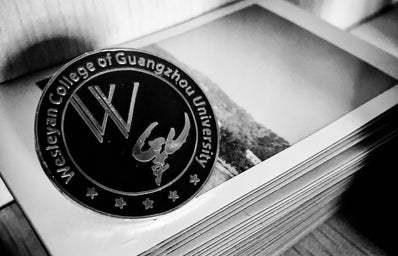I think I will be working on a sort of series where I write about things that I’ve learned in college and how I am applying these lessons to help me survive my final year of undergrad. This week, I will be addressing burnout. You don’t have to be an upperclassman to experience burnout in college, not at all. Personally, it hits me every semester, usually around mid-terms and finals. Considering we are just about at mid-term season, it seems like the perfect time to rant on this topic.
It all began about a week and a half ago. I noticed that I wasn’t able to get up quite as early as I usually do. Sleeping in isn’t a huge deal, though, right? We all need an extra hour cozied up in bed every once and a while, and I was getting all of my assignments and errands done beforehand so that I didn’t have to get up to finish anything last minute. In fact, I was feeling productive and ahead of schedule for the most part, so I didn’t pick up on the signs that I was actually exhausted.
It started with small things.
Some days I just didn’t feel like making a cup of tea in the morning (which I would thoroughly regret by the time I got to class thanks to my handy dandy caffeine addiction). I stopped putting my contacts in (my eyesight isn’t horrible but driving without them certainly wasn’t the smartest idea). I stopped making breakfast in the morning, because why not? I had breakfast bars.
I began to notice that I was probably a little overwhelmed when I was too tired to go home some nights, so I would crash on my friends’ couch several nights out of the week. I wasn’t drinking as much water, so I was starting to get blinding headaches in the middle of the day. I was tired all the time- even eight full hours of sleep didn’t feel like enough to recharge me.
I’m not an extraordinarily busy senior college student. College is rough every year, and I know so many other students that do so much more than I do, but I was overloading myself with more than I could realistically keep up with. I had taken on quite a few class hours in an attempt to finish up my major and two minors, but I also wanted to be as involved in campus life as I could be, since it’s my last year. I don’t do well with downtime- I like being busy. I get anxious when I don’t have a lot of stuff going on.
But apparently, I get anxious when I do have a lot of stuff going on, too. I was running on empty by this point but was suffering from immense Fear Of Missing Out syndrome. I didn’t want my grades to suffer, I didn’t want to miss out on time with friends, and I didn’t want to quit the clubs and organizations I’d committed to. So, naturally, I stopped sleeping, stopped cooking legitimate meals (I’m not sure when I last ate a vegetable), stopped doing laundry and dishes, and spent all my waking time laughing with friends, choreographing dance routines, completing assignments and research projects, and studying for the GRE.
This is exactly what not to do. As I write this, I’m recovering from the utter hell I’ve put my body and mind through for the past month and a half. I’ve been trying to allow myself to rest, you know, let that parasympathetic nervous system kick in for a hot minute. Now that I’m a bit ahead with my schoolwork, I’m working on reestablishing a way of living that is minutely healthy. I know we’ve all seen the list of self-care items that include bubble baths, a glass of wine, chocolates in silk pajamas, etc. etc. And don’t get me wrong, pampering yourself is a must when you can, but sometimes self-care is just getting back into a routine that includes basic life necessities that we’ve begun neglecting. Being an individual who gets suffers from mental illness and has a tendency to overwork myself in my jobs and in school, here are a few things I have to remind myself to do in order to get my life back on track.
- Take a shower; actually use soap; wash your hair if you have the energy or time
- If you don’t have the energy or time, throw your hair up or slap a hat on.
- Practice personal hygiene- brush your teeth, wash your face, etc.
- Wash your sheets; this really makes a huge difference- you’ll sleep better and feel better waking up.
- Do your laundry.
- Wash your dishes.
- Go grocery shopping when you can, and buy healthier foods.
- This can be fruit, veggies, peanut butter (if you aren’t allergic), etc. Try not to load up on junk food- you’ll continue to just feel tired and just gross.
- Find time to be with friends, but also take the time you need to be by yourself and recharge.
- Read something- for school, for fun, just take a minute to read and breathe.
- DRINK WATER! HYDRATE OR DIEDRATE!
- Put on clean clothes- even if it’s just clean underwear; I promise it helps.
- Get yourself back into a routine of some kind.
- This can be waking up at a certain hour every day for a week
- Following a morning routine that includes breakfast, tea, music, writing, or something else that gets you feeling ready to take on the day.
- Plan out study sessions and break times- breaks are important. Take breaks when studying.
- Seven to eight hours of sleep, my friends; practice a consistent night routine that allows you to get enough sleep and unwind properly after a long day.
- This means be careful about how much time you spend on your phone or laptop before you sleep; your sympathetic nervous system is still active even if you’re just laying around on your phone. Give yourself thirty minutes before you go to sleep without electronics.
- EAT, MY FRIENDS EAT!
- Give yourselves a break on the weekends or have a designated day off.
- Sunlight is important for mood regulation.
- Melatonin can help you get back into a proper sleeping routine; it’s more natural than almost any other sleep aid, and research indicates that it can help regulate mood and homeostasis as well as anti-depressants.
These obviously aren’t the only things you can do, and you don’t have to do them all, but I thought it would be helpful to some of you that are beginning to feel the burnout of this semester. Take care of yourselves, and have a fantastic week, my friends!


